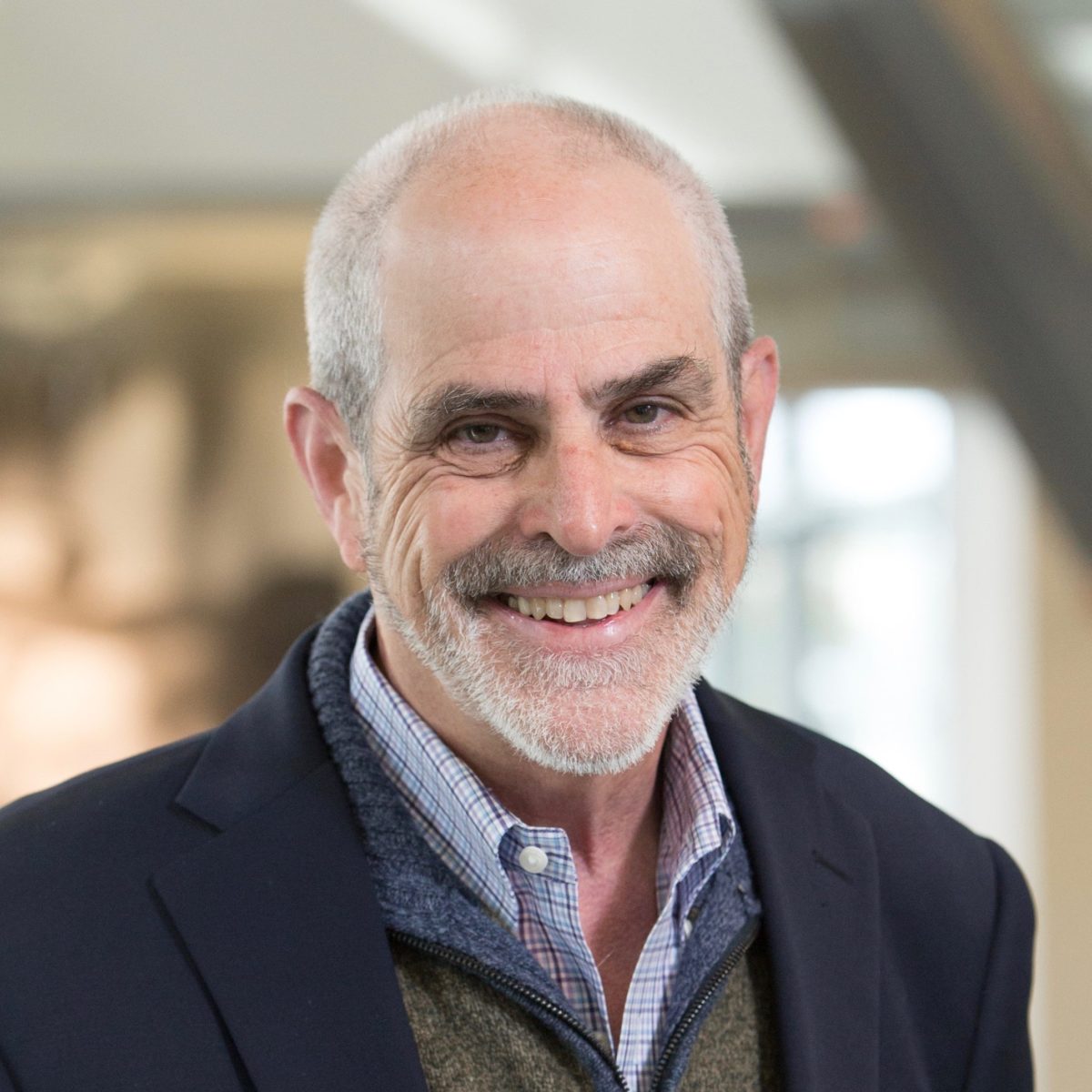INDIANAPOLIS – The Arnold P. Gold Foundation Research Institute recently created the Richard Frankel Award for Creating a Loving Community, in recognition of the contributions and achievements of Regenstrief Institute investigator and Indiana University professor of medicine Richard M. Frankel, PhD. Internationally respected for his contributions and achievements in fostering humanism in medical education, practice and research, he also played a significant role in establishing the Mapping the Landscape, Journeying Together initiative of the Gold Foundation Research Institute.
Dr. Frankel, who joined the Regenstrief Institute and IU School of Medicine faculties in 2002, has devoted his career to nurturing the social and emotional contexts of the doctor-patient relationship, and the researchers who study it, to improve medical care and outcomes. In 2015 he wrote, “medicine is fundamentally a human enterprise that is still practiced one conversation at a time.”
“Team science, which has supplanted individual science, has great potential but so much of science is based on a war metaphor –- attacking someone’s view, countering their position,” Dr. Frankel said recently. “In spite of the fact that we evaluate scientists as individuals, it’s very clear that teamwork is paramount in moving forward. Being part of that wave is of great interest and great excitement to me personally. Being a role model for those who may not have had the opportunity to experience real collaboration and positive loving relationships, in the agape sense of love as goodwill and benevolence, keeps me focused on what can be achieved by humanism in medicine — the delivery of better healthcare.”
Twenty-five years ago, Dr. Frankel developed the evidence-based Four Habits Model of Highly Effective Clinicians, a core set of communication skills and behaviors to help physicians, nurses and other clinicians interact with patients. Training in the Four Habits model, outlining behaviors which the Huffington Post has characterized as revolutionizing doctors’ visits, is currently offered at numerous medical and nursing schools as well as hospital systems on five continents.
More recently he conceived POISED — short for prepare, orient, information gathering, share, educate – an innovative model for developing and reinforcing good examination room computer-use by physicians. “The physician’s need to document a patient encounter must be balanced against the critical need to build and maintain a relationship with the patient,” Dr. Frankel said. “Computers in the exam room are here to stay. We need to integrate them into the physician-patient relationship in a patient-centered way. POISED provides a framework for us to do so.”
Good doctor-patient communication makes a difference not only in patient care outcomes but also in patient satisfaction according to Dr. Frankel, who has been an international leader in teaching empathy and communication to medical students and practicing clinicians, asking them to factor into their daily duties such questions as “Do my patients clearly understand what I am trying to convey?,” “What is the role of human emotions in health care?” and “Are we losing the ability to respond to the suffering of others with genuine empathy?”
Dr. Frankel’s over 250 research and review articles, books, and book chapters as well as his numerous presentations have focused on clinician-patient communication and its effects on quality and safety, the effects of exam room computing on physician-patient communication and effective organizational change strategies.
Dr. Frankel has been a strong supporter of the Gold Foundation Research Institute, which was created in 2012 to help accelerate discovery in humanism in healthcare, disseminate findings, and use those findings to make change. The Mapping the Landscape, Journeying Together initiative of the Research Institute is a community of practice dedicated to making research-based change to humanize healthcare for patients, clinicians and learners. In the past five years, MTL has funded 70 rigorous review of the literature on topics related to humanism in healthcare. MTL has also funded 17 Advocacy & Discovery grants that allow teams who’ve already conducted literature reviews to act on their findings by advocating for or implementing best practices or conducting research to fill a gap in the field. This interdisciplinary, multi-generational community of grantees includes over 400 participants from over 75 institutions across the US and Canada.
Dr. Frankel was instrumental in developing the model for MTL, in helping to plan its four annual symposia, and in constructing ways for community members to build collaborative and meaningful relationships with each other.
The recipient of the Richard Frankel Award for Creating a Loving Community is Helen Reiss, MD, director of the Empathy and Relational Science Program at Massachusetts General Hospital and associate professor of psychiatry at Harvard Medical School. The award was presented to Dr. Reiss during the Gold Foundation’s Mapping the Landscape Symposium in Chicago in May 2018.
“To our knowledge Rich Frankel is the first Regenstrief Institute investigator to have a national award named in his honor,” said Peter Embi, MD, president and CEO of the Regenstrief Institute and the Regenstrief Professor of Medicine and associate dean for informatics & health services research, IU School of Medicine. “We are grateful to the Gold Foundation for honoring him and celebrating his continuing legacy of relationship centered care and humanism in medicine.”
The Arnold P. Gold Foundation champions the human connection in healthcare. The not-for-profit organization engages schools, health systems, companies, and individual clinicians in the joy and meaning of humanistic medicine, so that patients and their families can be partners in collaborative, compassionate and scientifically excellent care.
The Regenstrief Institute is an Indianapolis-based organization dedicated to improving local, national, and global health and health care through innovation and research in biomedical informatics, health services, and aging.
Media contact:
Cindy Fox Aisen
Regenstrief Institute










